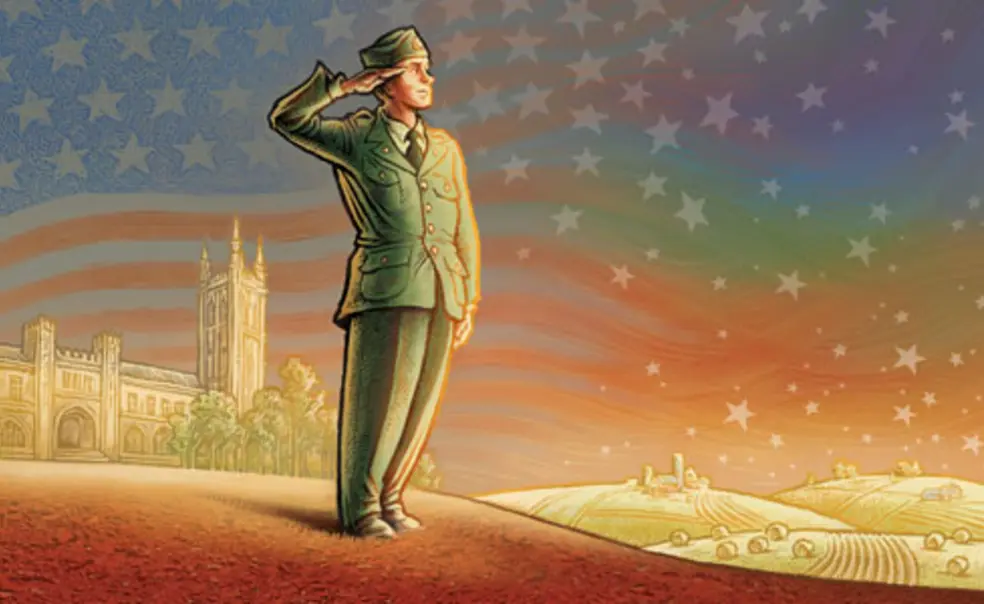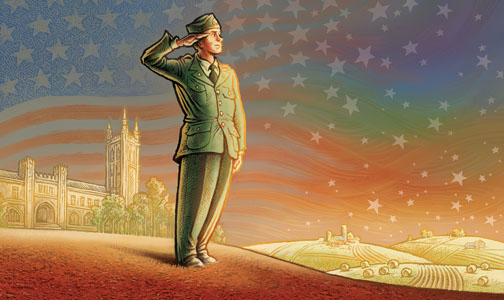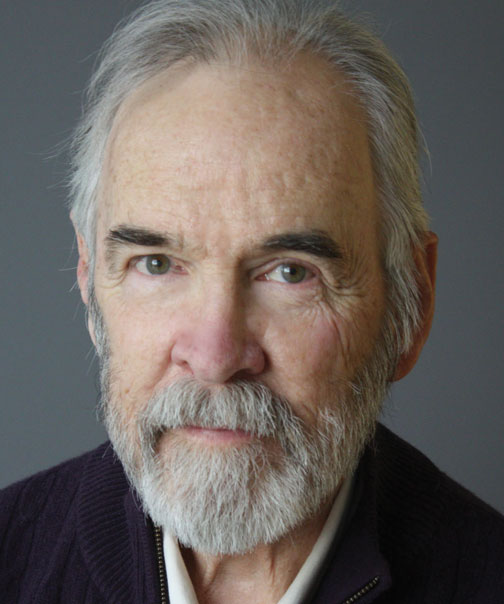Why we need national service
The late 1950s were a peculiar time in this country. The Korean War was over and Vietnam was still to come, yet thanks to the Cold War, the nation did not feel like a safe place. The United States no longer was invulnerable, isolated between its oceans. We had nuclear weapons, ballistic missiles, and a huge fleet of long-range bombers — but so did the Russians, and the Russians wanted to bury us. People were building fallout shelters in their back yards. My generation had grown up huddling under our school desks, practicing for the day Russian missiles might come our way, but even at 9 or 10 we knew that wasn’t going to protect us. The U.S. Army still had a draft, and every Ivy League school — and hundreds of other colleges — had an ROTC program. At Princeton, it was an artillery program. I joined because I figured I would have to serve my country one way or another, and I was pretty sure that it was going to be a lot easier to do that as an officer than as a private.
As it happened, most of my friends who did not join ROTC never saw the inside of a barrack. They got deferments and went to grad school, then married and had children early, which exempted them; some took their chances and never got called up.
But I have no regrets. ROTC (and the active duty that followed) was one of the most interesting experiences of my life, and as much of a learning experience — although of a different kind — as Princeton itself. The six weeks of training between our junior and senior years would be spent at Fort Sill, Okla., the Army’s artillery center, where 700 cadets from all over the country would learn how to fire 105-mm howitzers, how to run a fire-direction center (where soldiers figured out distances and directions to targets), and how to be forward observers — how, that is, to direct live fire on distant targets.
I was especially good at the forward-observer part. Divided into seven companies of 100, the cadets fired at six different targets: old tank bodies, broken-down trucks. My fire was perfect. I was chosen to fire a demonstration in front of all the other cadets. Again — no mistakes. Where this unexpected talent came from, I don’t know — but it was wonderful to find out that I had it. Along with it came an inner confidence that I could meet almost any challenge. It felt good.
Far more important than my personal triumphs was that in sending me to Oklahoma, ROTC allowed me to meet a broad diversity of people from all over the country. I was born and raised in New Jersey and never had been west of the Delaware River or south of the state of Delaware, where an uncle had a chicken farm. At Princeton, my circle of friends was small: We were almost all English majors, and we were mostly from the East. My world had been narrow; in Oklahoma, it began to expand. I made friends with a kid from Texas who had worked cattle on horseback; he already was a cowboy, and expected to be a cowboy forever. There was a boy from Virginia who wanted to spend his life in the military, where, he told me, you always have a job. The kids I knew at Princeton aspired to standard academic, business, or professional careers; those I met in Oklahoma were outside my range of reference.
Then there was Oklahoma itself. It was a dry state, and I was introduced to low-alcohol “3.2 beer” (it’s awful). Oklahoma had rattlesnakes, tarantulas, big sky, and giant thunderheads that climbed to 40,000 feet. I drove to Oklahoma City one weekend and went to the state fair, with a young woman I had met at a dance. (Princeton students went to Fort Sill with dress uniforms; we looked good, and most of us with cars got dates out of that dance.) I never had met a farm girl before, and my date was both pretty and proper. She told me what it was like to harvest 4,000 acres of corn for cattle feed. The only corn I knew about was the sweet, yellow ears we ate in the summer.
I was brought up to be independent and was a bit of a loner, which generally doesn’t make for good officer material. I never was good at following rules, and I never was tempted to make the Army a career. But I’m very grateful for the broadening the Army gave me, the exposure to another part of the country, and the exposure to the military itself. Princeton has fewer than 30 students in ROTC now, which is regarded as an extracurricular activity; in the 1950s, it had hundreds. This is a shame, and an opportunity missed. We all need to know our country better; we all need to expose ourselves to its enormous diversity. I long have believed in what the University professes to believe in — Princeton in the nation’s service. The military does precisely that: It serves the nation, and as things stand now, we have too few other institutions that offer a similar chance.
Service to the nation of some sort ought to be required of every citizen. Rich vs. poor, conservative vs. liberal, Northeast vs. Southwest — we hardly talk to each other now. We all were together in those concrete-floored tents at Fort Sill. We got to know each other, to like and respect each other. A system of national service that promoted such contacts would go a long way toward raising levels of tolerance and understanding in the nation, which seems to be breaking up into a set of warring tribes. All of us need to walk that mile in someone else’s shoes, see the world from another’s perspective, and do it long enough to recognize what we share as well as what is tearing us apart.
Anthony Brandt ’58 is the author of The Man Who Ate His Boots: The Tragic History of the Search for the Northwest Passage (2010).














No responses yet